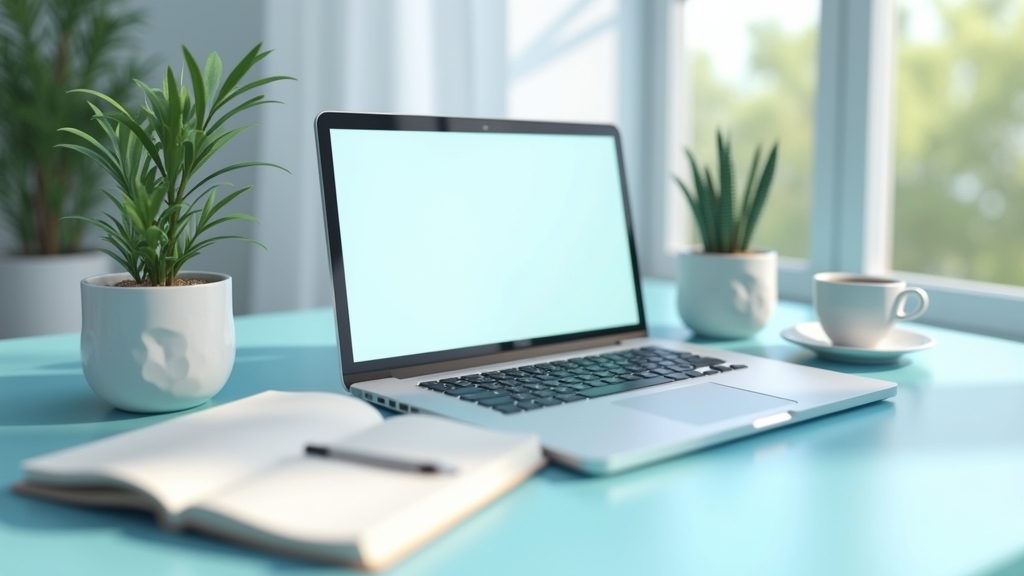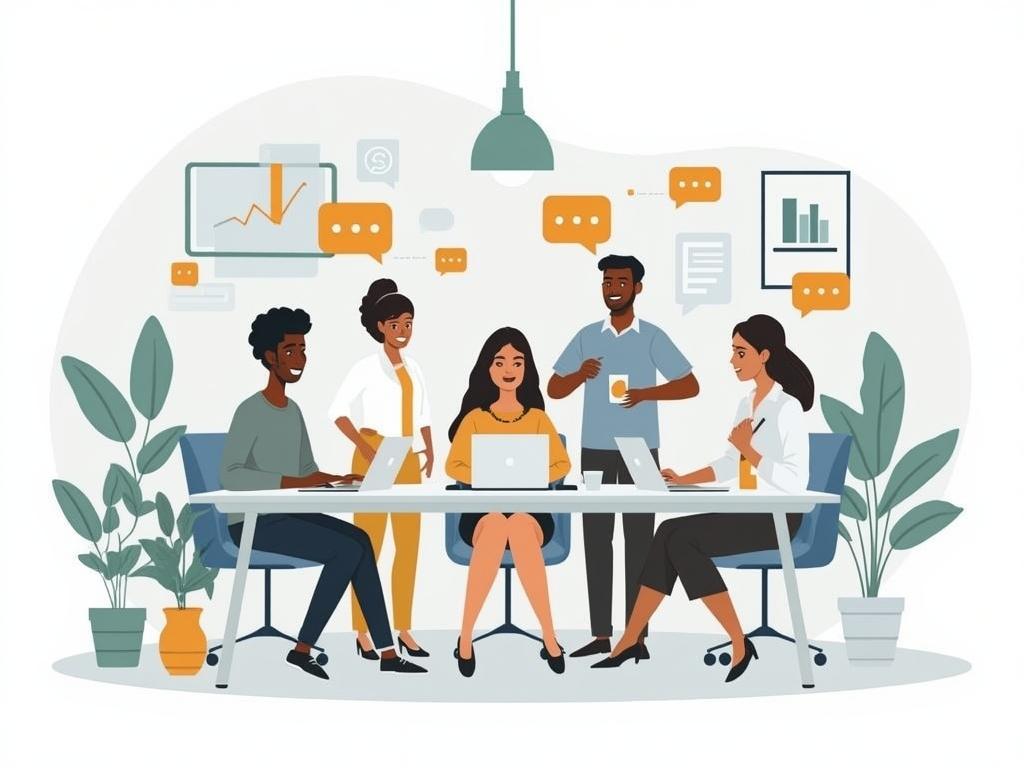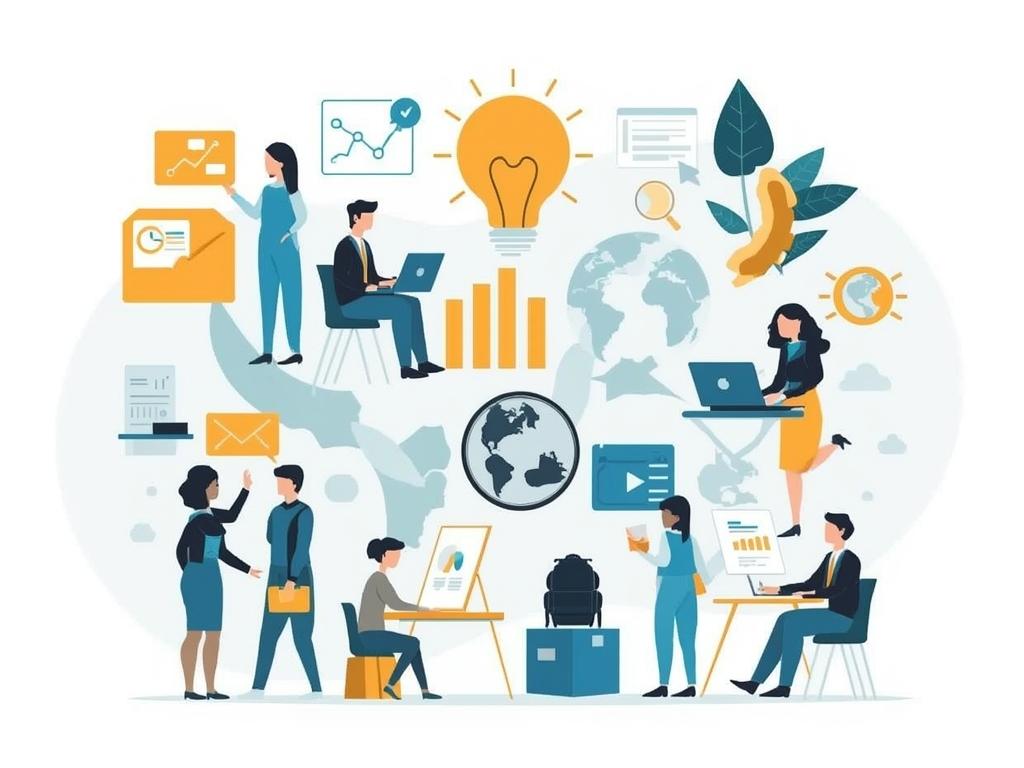What Is Digital Minimalism and Why Does It Matter?
We live in an age of endless stimuli. Notifications, emails, social networks, podcasts, videos and messages vie for our attention every second. But have you ever stopped to think about how much of it actually adds value to your life? O digital minimalism is a philosophy that proposes reducing unnecessary consumption of information and technology, focusing only on what is essential for your well-being and growth.
Contrary to what many people think, digital minimalism doesn't mean abandoning technology altogether. It's about use it intentionallyby eliminating distractions that steal your time and energy. Imagine your mind as a cupboard: if you fill it with useless items, it becomes difficult to find what really matters. The same happens with your attention.
Studies show that information overload can lead to chronic stress, decreased productivity and even memory problems. A report by the University of California reveals that employees check their emails on average, 74 times a dayand fragmenting your concentration. Are you also trapped in this cycle?
The good news is that adopting digital minimalism can bring immediate benefits: more mental clarity, time for meaningful hobbies and even improved relationships. Want to know how to get started? Let's explore practical strategies for transforming your relationship with technology.
The Negative Impacts of Digital Overload on Your Daily Life
Have you ever felt exhausted after spending hours scrolling through social media feeds? Or have you noticed that, even with access to tons of information, you feel like you haven't learned anything relevant? These are clear signs of digital overloadA phenomenon that affects millions of people without them realizing it.
One of the biggest problems is decision fatigue. The more information we consume, the harder it is to choose what deserves our attention. For example, if you open Netflix and see hundreds of options, it can take you longer to decide than to watch something. The same goes for unread emails or WhatsApp groups that only generate noise.
In addition, constant exposure to notifications fragments our focus. Microsoft researchers have found that it takes about 23 minutes to regain concentration after an interruption. Multiply that by the dozens of times you look at your cell phone every day and you'll have an explanation for that tired feeling at the end of the day.
Another little-discussed impact is the social comparison. Social networks show us edited versions of other people's lives, creating unrealistic expectations. How many times have you found yourself thinking "why isn't my life like this?" after seeing photos of other people's travels or achievements? This vicious cycle undermines self-esteem and diverts focus from what really matters: your own growth.
How to Identify (and Eliminate) the Digital Villains in Your Life
Now that you understand the negative effects, it's time to act. But how do you know what should stay and what should go? The first step is to awareness detox. For a week, write it down:
- Which apps you use the most (and for how long).
- What content leaves you feeling exhausted.
- Which notifications are really urgent.
Advertising
Tools such as Digital Wellbeing (Android) or Screen Time (iOS) help monitor your habits. You may be surprised to discover that you spend 3 hours a day on Instagram or that you compulsively check emails, even outside of work.
Then sort your apps into three categories: essential, optional e toxic. Essentials are those related to work, health or close communication (such as messages to family members). Optional ones provide entertainment or learning, but not too much. Toxic ones, on the other hand, are those that suck up your time with no return - addictive games, comparative social networks or sensationalist news sites.
A practical example: if you find that Twitter only leads to heated arguments, consider deleting it or limiting access to 10 minutes a day. Swap the habit of scrolling through your feed for something more enriching, like reading a book or practicing meditation. Small changes generate big transformations.
Practical Strategies for Adopting Digital Minimalism Today
Reducing digital overload doesn't have to be a radical process. Small adjustments can bring significant results. Here are some tried and tested strategies:
1. Disable non-essential notifications
Do you really need to be alerted to every like or store promotion? Leave only priority notifications (such as messages from family or work colleagues). That way, you decide when to check apps, not the other way around.
2. Establish technology-free zones
Set times or places where you don't use your cell phone. This could be during meals, in bed before going to sleep or in the bathroom. These moments of "disconnection" help recharge your mental energy.

3. Adopt the "less is more" rule for apps
Keep only one app per function. For example: instead of three music players, choose one. Instead of five social networks, stick to two. Simplifying reduces choice anxiety.
4. Practice conscious consumption of information
Before you click on a link or video, ask yourself: Will it add something to my life today? If the answer is no, move on. Make a habit of consuming less, but with more depth.
The Benefits of Digital Minimalism for Your Mental Health
When you reduce digital noise, something incredible happens: your mind gains space to breathe. People who adopt this practice report improvements:
- Sleep qualityBlue light from screens slows down the production of melatonin, the sleep hormone. By reducing night-time use, you fall asleep faster and wake up feeling refreshed.
- Reducing anxietyFewer social comparisons and less pressure for immediate responses reduce levels of cortisol, the stress hormone.
- Greater presence at the momentWithout the compulsion to check your cell phone, you reconnect with real conversations, hobbies and even yourself.
A study by University of Pennsylvania showed that participants who limited their use of social networks to 30 minutes a day reported significantly lower levels of loneliness and depression after three weeks. This proves that less time online can mean more happiness offline.
How to Maintain Digital Balance in the Long Term
Adopting digital minimalism is not about following strict rules, but about creating a healthy relationship with technology. To maintain balance:
- Do monthly reviews: Every 30 days, assess whether your habits are still in line with your goals. Apps that were useful may have become distractions.
- Replace old habits with new onesIf you used to spend hours on TikTok, how about switching to an online course or practicing exercises?
- Share your journey: Talk to friends or family about your changes. They may be inspired and even become detox partners.
Remember: the goal is not perfection, but progress. If one day you overdo the screen time, don't blame yourself. Start again the next day.
Real Inspirations: People Who Transformed Their Lives with Digital Minimalism
Need extra motivation? Get to know some real stories:
- Ana, 32 years oldShe deactivated all her social networks for six months. Instead, she learned to cook and started a healthy recipe blog, which is now her source of income.
- Carlos, 40 years oldHe adopted a "dumb" cell phone (without internet) for creative work. In a year, he wrote his first book and reduced his anxiety attacks.
- Marina, 28, deleted delivery apps and started cooking at home. She saved money and lost 8 kg without restrictive diets.
These examples show that when you takes control of technology (and not the other way around), makes room for real achievements. How about being the next success story?
Ready to Start? A 7-Day Challenge for You
If you've come this far, you're probably thinking: "Where do I start?" How about a practical challenge?
Day 1: Delete 5 apps you haven't used in over a month.
Day 2Disable all notifications except the essential ones.
Day 3: Establish a "no cell phone zone" (e.g. dinner).
Day 4: Swap 30 minutes of social networking for an offline activity.
Day 5: Clean out your mailbox (unsubscribe from useless newsletters).
Day 6: Try reading a physical book instead of scrolling through the feed.
Day 7: Reflect: how did you feel? What do you want to keep or adjust?
Small actions create big changes. Digital minimalism is not a passing trend - it's a lifestyle that gives you back what technology often robs you of: time, focus and freedom.
So, are you ready to transform your relationship with the digital world? Start today and discover a new level of clarity and personal growth.


